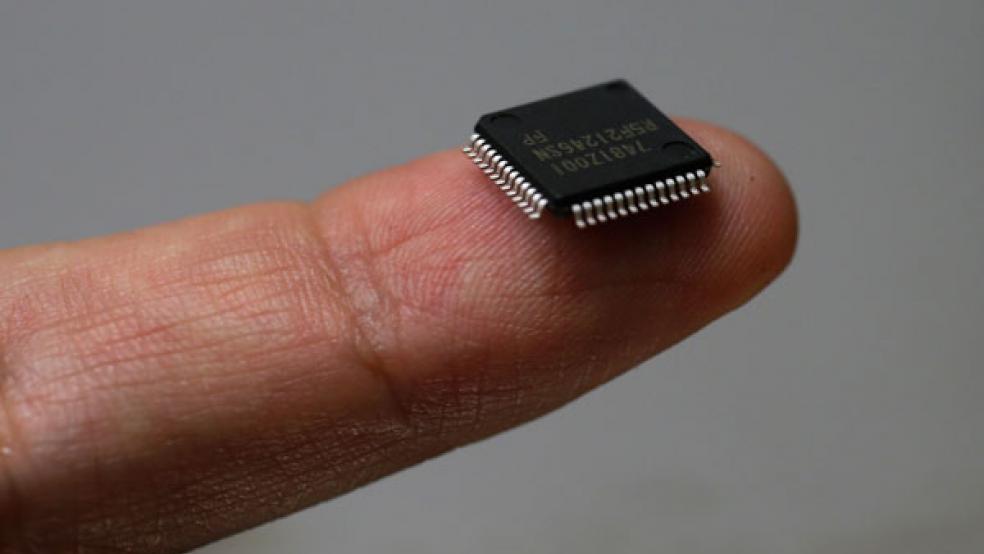The Biden administration announced Monday that the first federal grant intended to boost U.S. semiconductor manufacturing is going to an American subsidy of BAE Systems, a multi-billion-dollar British defense contractor.
The $35 million grant is a tiny slice of the roughly $50 billion provided by the CHIPS and Science Act of 2022 to strengthen American manufacturing of this key piece of technology. BAE will reportedly use the funds to expand a manufacturing facility in Nashua, New Hampshire, that produces computer chips used in advanced weapons systems, including F-15 and F-35 fighter jets.
Speaking at the BAE facility Monday, Commerce Secretary Gina Raimondo highlighted the national security logic behind the federal support for semiconductor manufacturing. “In order to defend our great country, we need to make the chips that go into military equipment in the United States of America, by Americans,” she said. “And that’s what this is about.”
More and larger grants will be announced in 2024, Raimondo said, as the program ramps up. “Fundamentally, you’ll see, all over the country, big expansions in semiconductor manufacturing and the supply chain,” she said.
In a statement, President Joe Biden noted that the semiconductor was invented in the U.S. “But over time, the United States went from producing nearly 40% of the world’s chips to just over 10%, undermining America’s national security and making our economy vulnerable to global supply chain disruptions,” he said. “My CHIPS and Science Act aimed to change that – and already, we are revitalizing America’s leadership in semiconductors, strengthening our supply chains, protecting national security, and advancing American competitiveness as a result of the law and our Investing in America agenda.”
The White House has also emphasized the economic benefits of expanded chip manufacturing. “This announcement delivers on President Biden’s commitment to restoring American leadership on semiconductors, advancing our national security, and creating good family-sustaining jobs here in New Hampshire and around the country,” said Lael Brainard, who leads the National Economic Council.
Among other incentives, the law provides a 25% tax credit for new chip manufacturing facilities built in the U.S.
Biden’s $280 billion legislative package has sparked more than $220 billion in private investment in chip manufacturing, involving 44,000 new jobs, according to the Semiconductor Industry Association, a trade group.
While the CHIPS Act appears to have been effective in sparking new investment so far, some experts have warned that more subsidies may be needed in the future, given the higher costs of manufacturing in the U.S. “I think the huge question that remains is how enduring will these investments be over time,” Chris Miller, a historian of technology at Tufts University, told Anna Swanson of The New York Times. “Are they one-offs or will they be followed by second and third rounds for the companies involved?”
Budget
First CHIPS Act Grant Goes to Major Defense Contractor

REUTERS/Kim Kyung-Hoon


